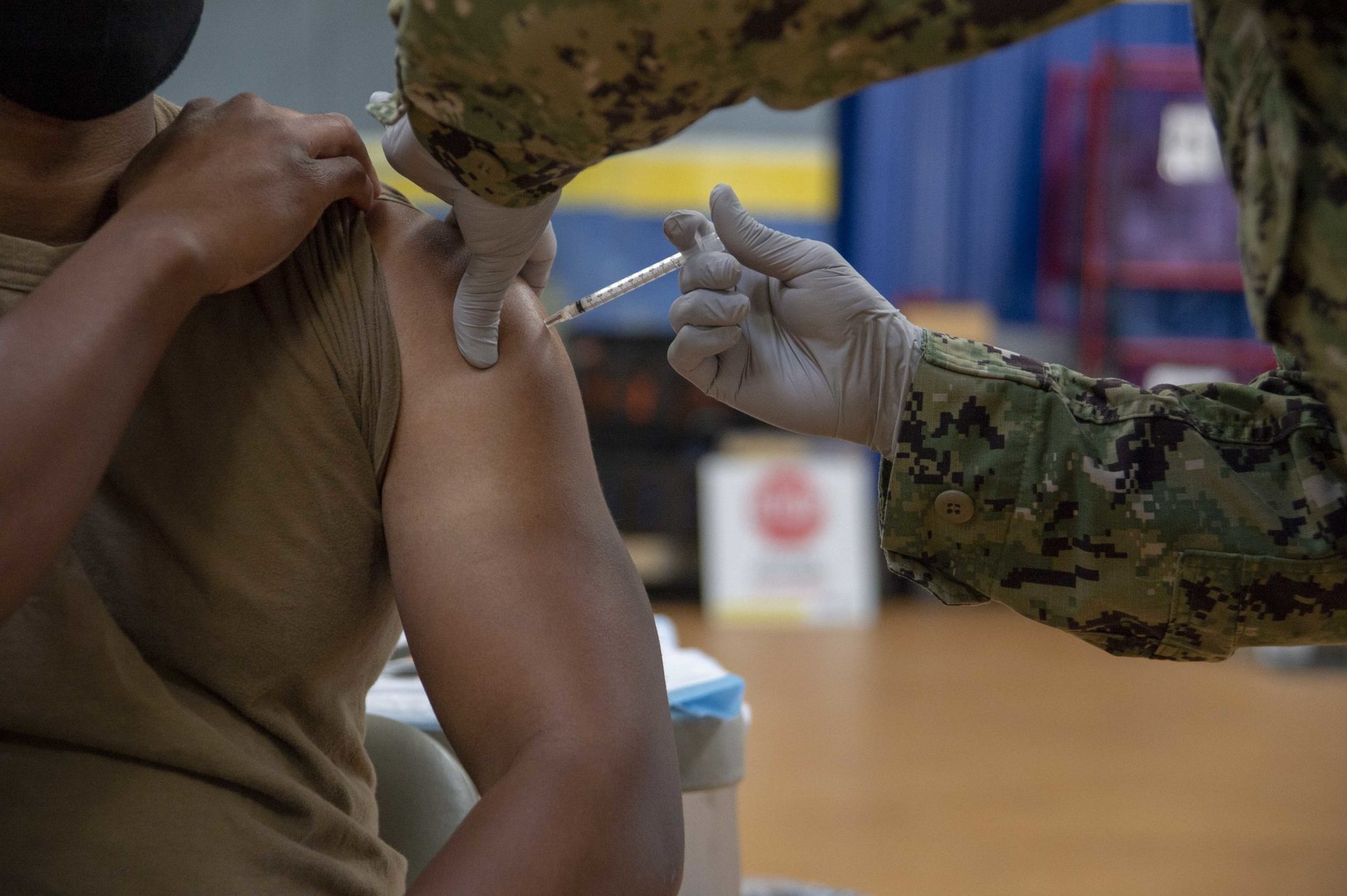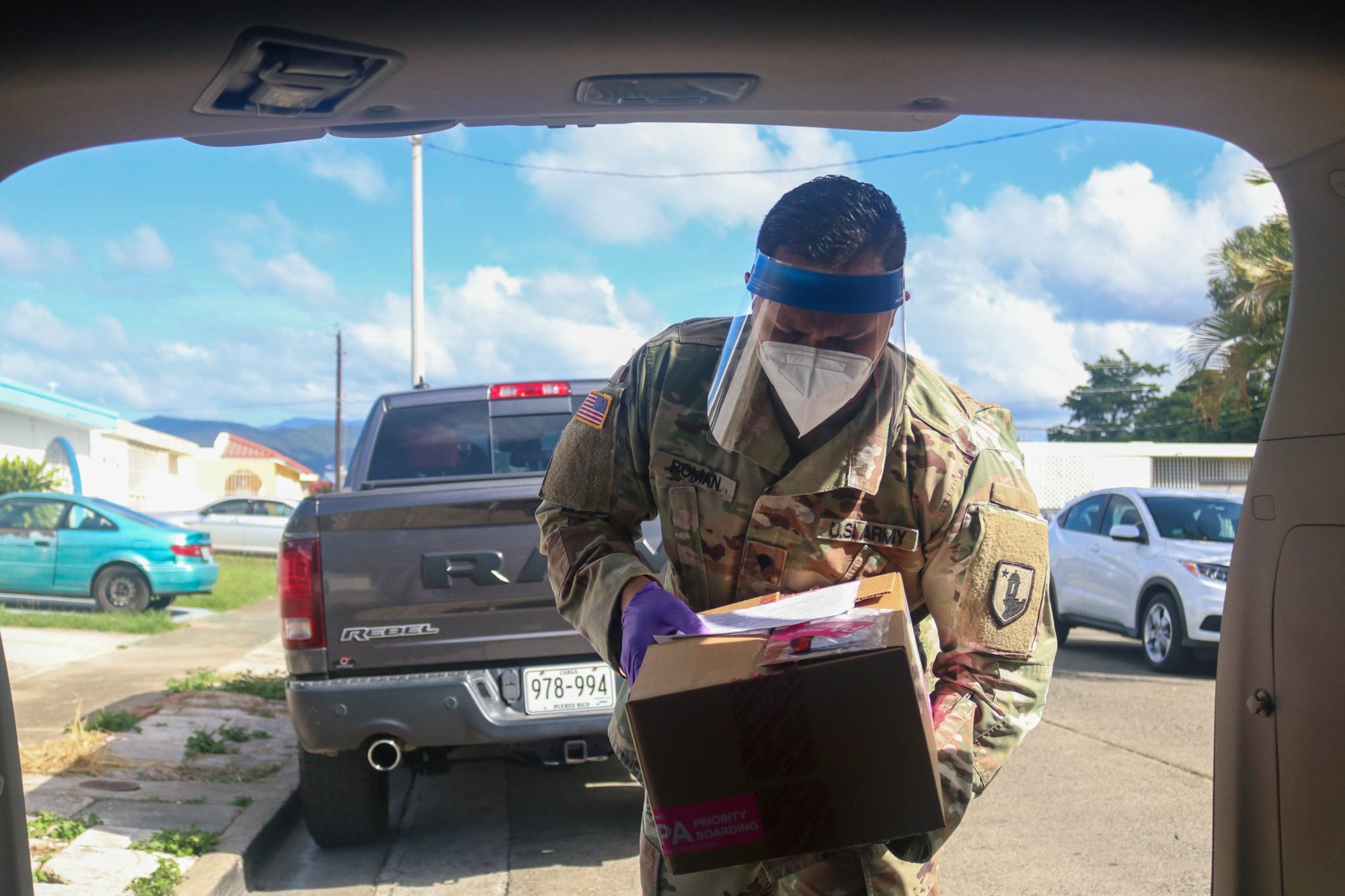Federal Court Halts Navy From Punishing SEALs, Spec War Sailors for Vaccine Refusal

A sailor receives the COVID-19 vaccine at Naval Base San Diego, Jan. 22, 2021. A federal judge has issued a preliminary injunction to block the Navy from punishing dozens of SEALs and Special Warfare sailors for refusing the coronavirus vaccines. US Navy photo by Mass Communication Specialist Seaman Luke Cunningham.
A federal court in Texas told the Pentagon Monday that it could not punish two dozen Navy SEALs and other Naval Special Warfare sailors for their refusal of the COVID-19 vaccine mandate on religious grounds. The order came as a preliminary injunction in a lawsuit filed by the sailors against the Department of Defense and the Biden administration.
“The Navy service members in this case seek to vindicate the very freedoms they have sacrificed so much to protect. The COVID-19 pandemic provides the government no license to abrogate those freedoms,” US District Judge Reed O’Connor said in his decision. “There is no COVID-19 exception to the First Amendment. There is no military exclusion from our Constitution.”
According to a press release by First Liberty Institute, the firm representing the plaintiffs, the Navy had warned sailors inquiring about religious exemptions that refusal of the vaccine could lead to court-martial or involuntary separation. The Navy also threatened to confiscate the sailors’ Special Warfare and SEAL Trident devices if they sought religious exemptions.

Aware of the possible consequences, the sailors submitted their exemption requests, all of which were denied. Based on the nearly identical wording in the denials, the First Liberty Institute team believes the Navy was never taking their clients’ requests seriously.
Mike Berry, a lawyers for the sailors, said forcing a service member to choose between their country and their faith is “abhorrent to the Constitution and America’s values.” He said though the injunction only applies to his clients, it gives other service members a path to follow if they plan to fight for their religious exemption from the vaccines.
But the injunction is temporary. What happens next, Berry told Coffee or Die Magazine, is up to the Navy.
“The ball’s squarely in their court. I don’t know if they’re going to appeal or if they’re going to let it go,” Berry said. “I hope that […] common sense would prevail here and the Navy will recognize that it’s doing a great harm and great injustice to its own service members.”
A Navy spokesperson would not comment on the likelihood of an appeal.
Berry said the outcome was what he and the plaintiffs had been hoping for. But the injunction is only temporary. If the Navy chooses to appeal the case, it will end up in the Fifth Circuit Court of Appeals, Berry told Coffee or Die.
Update, 6:20 EST: A comment from the Navy received after publication has been added to this story.
Read Next:

Dustin Jones is a former senior staff writer for Coffee or Die Magazine covering military and intelligence news. Jones served four years in the Marine Corps with tours to Iraq and Afghanistan. He studied journalism at the University of Colorado and Columbia University. He has worked as a reporter in Southwest Montana and at NPR. A New Hampshire native, Dustin currently resides in Southern California.
BRCC and Bad Moon Print Press team up for an exclusive, limited-edition T-shirt design!
BRCC partners with Team Room Design for an exclusive T-shirt release!
Thirty Seconds Out has partnered with BRCC for an exclusive shirt design invoking the God of Winter.
Lucas O'Hara of Grizzly Forge has teamed up with BRCC for a badass, exclusive Shirt Club T-shirt design featuring his most popular knife and tiomahawk.
Coffee or Die sits down with one of the graphic designers behind Black Rifle Coffee's signature look and vibe.
Biden will award the Medal of Honor to a Vietnam War Army helicopter pilot who risked his life to save a reconnaissance team from almost certain death.
Ever wonder how much Jack Mandaville would f*ck sh*t up if he went back in time? The American Revolution didn't even see him coming.
A nearly 200-year-old West Point time capsule that at first appeared to yield little more than dust contains hidden treasure, the US Military Academy said.












